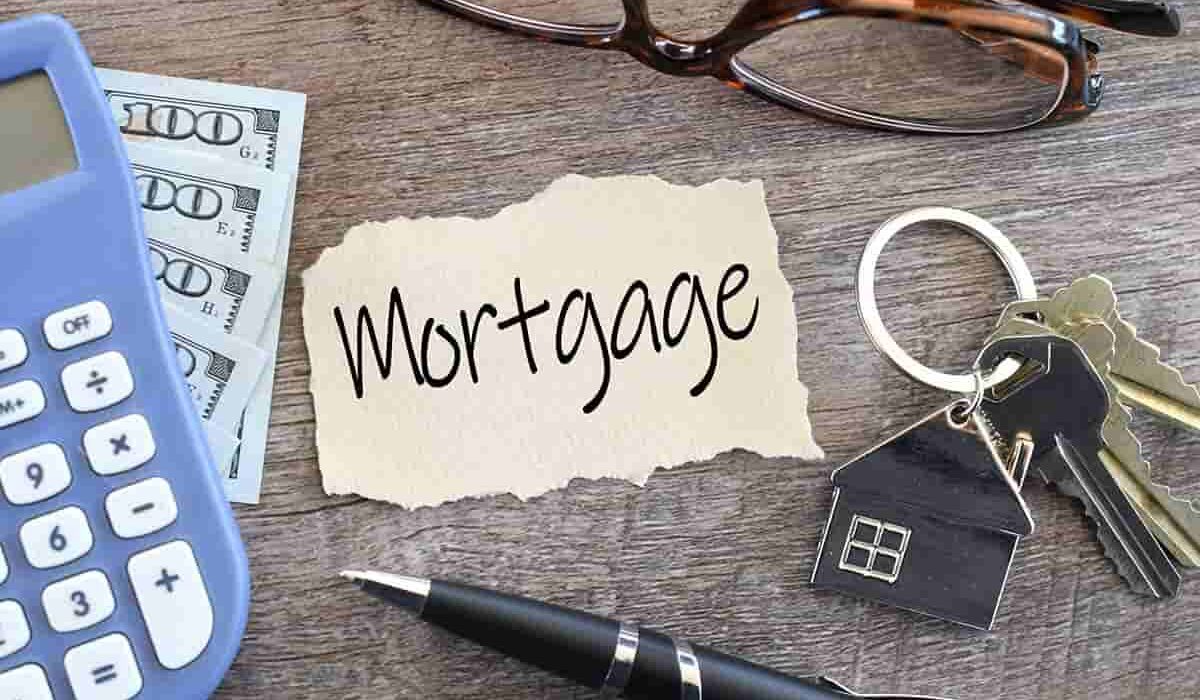The Difference Between a Conventional and FHA Loan
You are in the market to buy a new home and wonder what the difference is between a Conventional and FHA Loan. In this article, we will explain what the differences are and which loan is best.
Conventional loans are provided through private entities, whereas FHA loans are from a government agency. Conventional loans often require a lower down payment than FHA loans. Conventional loans also require the borrower to have a better credit score.
If you need to obtain a loan to buy a property, you will need to find the loan type that is right for you. We are here to help you with your decision.
What Does a Conventional Loan Mean?
Conventional loans are mortgages given through private lenders such as banks and other financial institutions. They are not backed by a government agency. There are two types of conventional loans.
With a conventional loan, you will need a credit score at or above 620. You will also be required to determine your DTI: debt to income ratio because your DTI should be below half of what you earn to receive a conventional loan.
To determine your DTI:
- Add up all minimum monthly payments on all your credit and debt, including student loans.
- Then divide this by your monthly gross income, the amount you earn before taxes are withheld.
This will show you what percentage of your income is going out and how much you can save.
Conventional loans often have a lower requirement for the down payment than an FHA loan. You are often able to get a conventional loan with three percent of your own money to put on a down payment. However, you will be responsible for your mortgage insurance.
The two types of conventional loans are conforming and non-conforming. A conforming conventional loan does not exceed the FHFA, Federal Housing Finance Agency’s, maximum loan amount. A non-conventional loan may far exceed these boundaries.
To obtain a non-conforming loan, you often need a credit score of 700 or higher, and you must be able to put ten to 20 percent down.
What Does an FHA Loan Mean?
FHA stands for the Federal Housing Administration. This type of loan will be insured through the FHA. It is meant to help lower-income families and individuals with purchasing a home. Those with 10% of the down payment and a credit score between 500 and 579 qualify for this mortgage.
To secure a downpayment on an FHA loan you can utilize:
- The money you have in savings
- A monetary gift from relatives
- A down payment assistance grant
If your credit score is 580 or higher, you will qualify for a minimum down payment of 3.5% of the selling cost. The FHA loan may cover a little more than 96% of the value of the home.
Which is Better FHA or Conventional?
Conventional loans are often the better choice because the borrower has more options. The property does not need to fit the strict standards of an FHA loan and the borrower may not need to purchase mortgage insurance.
Even though the conventional loan is often better in long-term aspects, the FHA loan is better for those who do not have a higher credit score and for those with a debt to income ratio over 43%.
So, if your credit is not great and your DTI is high, you might only qualify for an FHA loan. However, the lower your debt to income ratio is and the higher your credit score a conventional loan wins with:
- Lower minimum down payment
- Higher loan limit
- Drop-in mortgage rate as your credit score increases.
This also means that your monthly loan payments and private mortgage insurance rates will decrease as well.
What are the Disadvantages of an FHA Loan?
The main disadvantage of an FHA loan is the mortgage insurance must be paid for the entirety of the loan period. FHA loans also require strict appraisal guidelines, and the buyer is unable to buy for investment purposes.
FHA Disadvantage One: Mortgage Insurance Premiums Required
With an FHA loan, mortgage insurance must be paid for the duration of the loan period. This will include an upfront cost and an annual cost. It is determined by the total amount of the loan.
Your upfront mortgage insurance premium will be equal to 1.75% of the total amount of your loan. It is only due once unless you refinance your loan. This can be a large additional sum to come up with at the closing of the property sale. However, you might be able to have it included in your monthly loan payments.
The annual amount you will pay will be determined by:
- The total loan amount
- The size of your down payment
- The amount of time you will be paying on your loan.
To determine how much you will be required to pay every month, divide the annual payment by 12.
FHA Disadvantage Two: Strict Appraisal Requirements
When purchasing a home with an FHA loan, the buyer is required to have the home inspected by a licensed home inspector, and it must conform to the FHA’s strict guidelines for approval.
By utilizing an FHA home loan, the property you are interested in purchasing must be in livable condition. It also needs to be worth the final sale price. A licensed HUD inspector and appraiser will tour the home and property to make sure it meets the minimum:
- Safety requirements: These include working electricity throughout the home, drinkable freshwater, emergency exits, smoke detectors, and more.
- Security requirements: The inspector will look for things such as locking exterior doors and windows to prevent intruders, and how the property is laid out to ensure the safety of the residence.
- Soundness Standards: The buildings on the property must meet or exceed current building codes for that area. The roof must be in good shape with at least three years of life left on it.
The foundation must also be in sound condition. There cannot be anything in the surrounding environment that could cause the home to be compromised.
These are standards across the country and enforced by the eCFR. They are in place to ensure the property is deemed safe and has the necessary amenities for dwelling. In addition, these standards protect the home buyer as well as the lender.
FHA Disadvantage Three: Cannot Be Used for Investment Purposes
An FHA loan cannot be used to purchase as an investment property. The property is approved when the buyer agrees to live there for at least one year after purchase. A buyer cannot obtain an FHA loan if they are planning to flip the home. This also means you must purchase a dwelling.
With an FHA loan, you must buy a home. You are not able to buy a restaurant or a business. You can purchase a multifamily residence that has less than four livable units. And though you can use an FHA to buy raw land, you must also secure an FHA construction loan to build a house.
Can I Switch From an FHA to a Conventional Loan?
You can switch from an FHA loan to a conventional loan by meeting the following criteria:
- Bring your DTI to 43% or below
- Bring your credit score to 620 or higher
- Have 20% equity in your home.
When refinancing with a conventional loan, you will need to be on the title of the property for at least 6 months, and you will need to have resided on the property for a year at the minimum.
So, getting an FHA loan is still a good choice if you have a lower credit score to begin with. As you pay your loan and mortgage insurance premiums, your credit score will also begin to rise.
This will allow you to refinance. If your credit score is good and debt to income has dropped, you will probably be able to eliminate your mortgage insurance, which will help drop your monthly payments even more.
Why do Sellers Prefer Conventional Over FHA Loans?
There are a few reasons why sellers often prefer a conventional loan over an FHA loan. If a seller agrees to an FHA loan offer, the property must be inspected and might be found to be less in value than the asked price. The seller must also repair and replace what the inspector finds unacceptable.
Because the FHA has such standards, it may be that the seller needs to accept a lower offer. If they will not accept a lower offer and the buyer is unable to come up with a larger down payment, the buyer can decide to relist the home.
Unfortunately, when the seller relists the appraisal from the HUD inspector remains tied with the home for 120 days. This could cost the seller, as this information becomes public knowledge. Once buyers are aware that a property is considered overpriced, they will attempt to get the seller to agree to a lower price.
If the seller agrees to the FHA standards, they will also be responsible for replacing any old appliances and fixing anything on the property that may be a danger to the occupants. This includes having sidewalks fixed or lead paint scraped off and new paint applied to the home.
Yet another reason sellers do not care for FHA loans may be directed toward the buyer. Sellers might feel it is too risky to deal with the buyer. They may feel the buyer will not be able to come up with a down payment, especially if the seller is unwilling to reduce the sale price should an inspector decide they are asking too much.
The Difference Between a Conventional and FHA Loan
When you are trying to decide on the type of loan to get, the first thing you need to consider is what your credit is like and how much you can put down on a home. You do not need a high credit score to get an FHA loan, but it will cost more than a conventional loan in the long term.
If you can work on your credit score and DTI before applying for a loan, it would probably be within your best interest to get a conventional loan. However, building better credit can take years, and if you already qualify for an FHA, you will be able to refinance at a later time.




